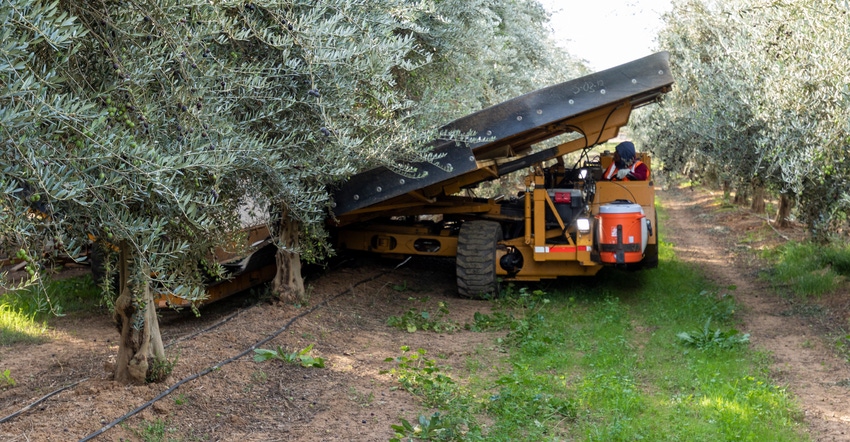
It's been a process, but California's table olive industry continues its positive turn-around as a major olive processor is now able to deliver on its considerable promise to growers.
Musco Family Olive Co. in Tracy, Calif. announced last year it would provide one million table olive trees to growers willing to partner with the processor of ripe olives sold under the Pearls and Early California brands. That announcement followed a move by Musco earlier the same year to contract with growers who had their contacts with a competing firm suddenly cancelled.
Fast-forward to late 2020 and Musco says it has the trees and is making good on its promise to help modernize an industry that suffered because of unfair trade practices.
The offer is open to select grower partners ready to pioneer state-of-the-art orchards with modern acreage planting styles – closer tree and row spacing – that can be mechanically harvested. That is the critical step in this process to fully modernize the U.S. table olive industry and allow it to compete on the international playing field.
“My family first planted modern acreage about 12 years ago and the results have exceeded our expectations,” said Dennis Burreson, a grower and vice president of field operations and industry affairs for Musco Family Olive Co. “Most importantly, the economic advantages from modern olive acreage dramatically exceed our almond and walnut orchards.”
Modern table olive plantings include newer varieties that allow for high density orchard spacing in a style already employed by California growers of other orchard crops. Olives for oil are a notable comparison as growers there are experimenting with tree and row spacings that can combine to nearly 1,000 trees per acre.
For the table varieties, modern spacings of up to 250 trees per acre, versus the standard 80 trees per acre, allow for easy mechanical harvesting and are said to be more drought tolerant than popular tree nuts, and consume less water than almonds or walnuts.
“Our company is all in on transitioning the U.S. olive industry into a newly proven, modern, efficient, and economically promising crop that will flourish for generations to come,” said Felix Musco, the company’s chief executive officer. “We've been working relentlessly to bring significant changes to the olive industry that will benefit California olive growers and their families.”
Musco is making these moves on the heels of recent international trade victories for the California ripe olive industry. That centered on import relief against unfairly traded Spanish olives. For years, companies flooded the U.S. market with subsidized Spanish olives priced unfairly below American-grown olives. In addition to the trade relief from the olive cases, and in a separate action involving another sector of commerce, the United States also imposed 25% tariffs on subsidized, bulk ripe olives grown in Spain and packed in California.
“Modern olive acreage is the crop of the future," Musco believes. "The looming challenges facing farmers – increasing labor costs, decreasing labor supply, loss of prime farmland, rising water costs, increasing demands on water use, and reliance on selling to volatile foreign markets – are all effectively addressed when planting and growing olives in the modern format.
For more information about the million tree offer and the many advantages of modern acreage, visit: www.olives.com/milliontrees
About the Author(s)
You May Also Like






